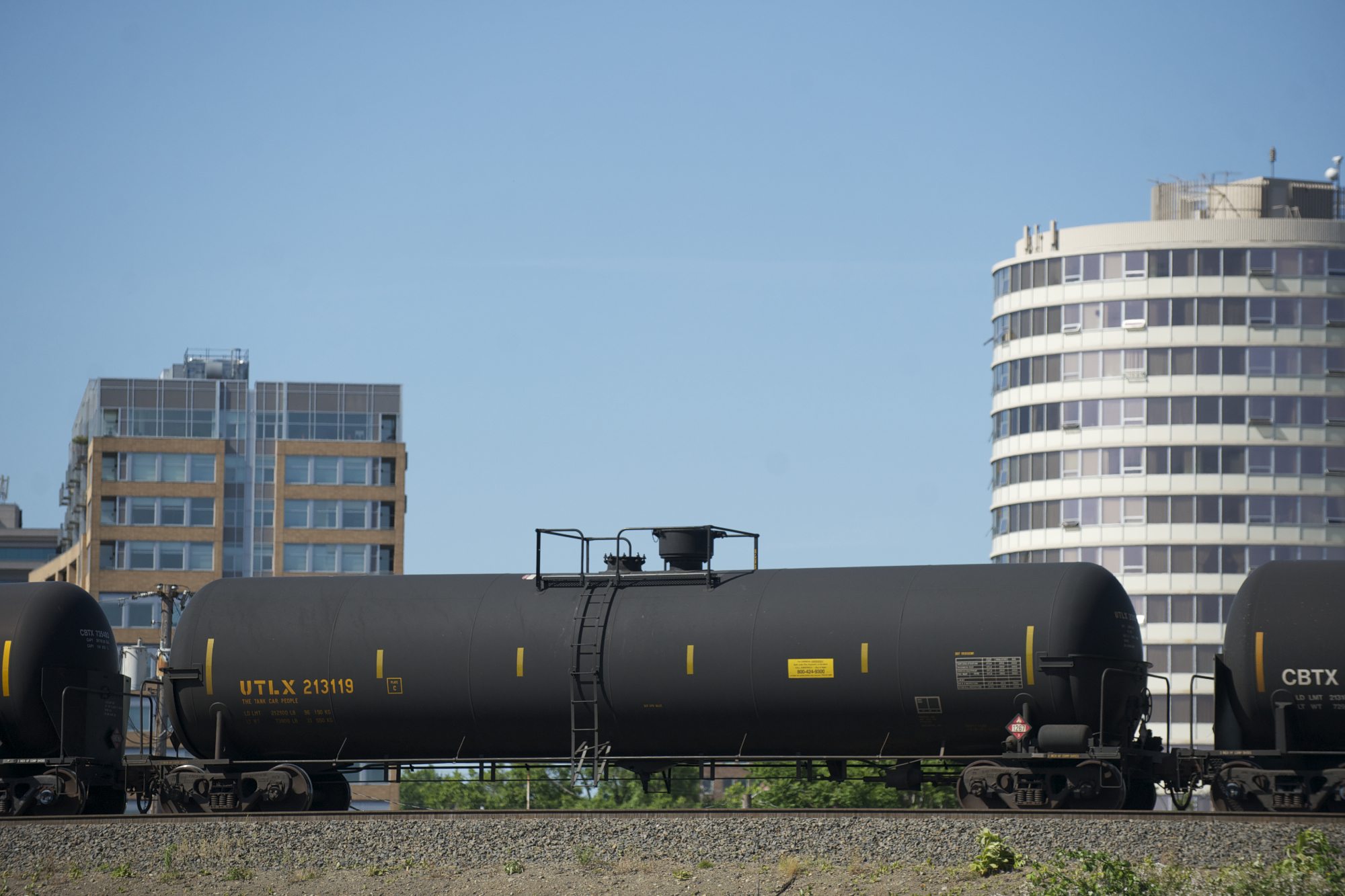The state Department of Natural Resources says the nation’s largest oil-by-rail terminal, proposed at the Port of Vancouver, should be denied state approval — and Clark County has raised its own issues with the proposal.
In filings made with the Energy Facility Site Evaluation Council that The Columbian obtained Wednesday, DNR managers said the terminal and its daily oil train traffic would increase the risk of wildfire along hundreds of miles of track, something state firefighters “are not prepared to address.”
“Because of the potential for tremendous catastrophic loss associated with shipment of crude-by-rail, and the difficulty in adequately assessing the frequency at which disasters will occur,” reads the filing signed by Assistant Attorney General Terence Pruit, “(the council) cannot meet its obligations to assure the public that the proposal contains adequate safeguards for public welfare and protection and to ensure the proposal will have minimal adverse environmental consequences.”
Clark County Deputy Prosecutor Taylor Hallvik, meanwhile, wrote in a similar filing that the terminal presents “unacceptable risks to the health and safety of the Jail Work Center population,” which is near where the terminal would be built. The county did not ask for denial, saying that it believes “complete mitigation of these significant risks is possible through a Tesoro-Savage funded relocation of the JWC to a location that is not surrounded by a crude oil terminal.”
Vancouver Energy, a joint venture of Tesoro Corp. and Savage Cos., proposes to receive up to 360,000 barrels of crude oil by rail per day and ship it via the Columbia River to West Coast refineries. About four trains of 120 cars each would serve the terminal daily traveling mostly from North Dakota through the Columbia River Gorge.
The documents obtained Wednesday are just a few of the many filed ahead of adjudication hearings, which begin Monday. The five weeks of trial-like hearings will involve written testimony and cross-examined witnesses, giving equal time to Vancouver Energy and the Port of Vancouver as well as the terminal’s opponents.
Using those hearings and an environmental impact statement that is still being finalized, the evaluation council will eventually give a recommendation on the project to the governor of Washington, who makes the approval decision.
Vancouver Energy has maintained it can build and operate the terminal safely and in an environmentally sound manner. The company’s own adjudication filing it sent to The Columbian on Wednesday said opponents are focusing on trains and ships — which Vancouver Energy does not own or operate — while the focus of the state’s review should be on the terminal itself.
“Vancouver Energy is looking forward to commencement of the adjudication and the opportunity for a fact-based evaluation of our proposed terminal, which is being designed to meet or exceed all applicable standards for safety and environmental protection,” spokeswoman Tina Barbee wrote in an email Wednesday.
The city of Vancouver disagreed with the company line, as Assistant City Attorney Karen Reed wrote in a filing: “Because the facility’s true costs are unwarranted and the unreasonable risks of its operations will be borne not by Tesoro but by Washington’s citizens and taxpayers, Vancouver requests that (the council) recommend denial of the application.”
Assistant Attorney General Matthew Kernutt, who as the counsel for the environment represents the public’s interest in the environment during adjudication, wrote: “Human error piloting a vessel in the Columbia River or one broken bolt on a track could lead to a significant environmental and public safety disaster.”
Columbia Waterfront LLC, the Vancouver waterfront developers led by terminal opponent Barry Cain, wrote in a filing that “there are no conditions the council could impose that would protect the interests of affected communities and tribal and state governments or ensure a clean, safe and healthy environment.” The railroad tracks leading to the port border Columbia Waterfront’s project on the north side.
The evaluation council or governor can put conditions on the terminal’s approval meant to satisfy concerns raised by opponents and other stakeholders. Some conditions could also effectively kill the project.
The terminal was first proposed three years ago and has fueled a bitter fight that remains divisive in the community. The governor’s approval, denial or conditional approval may not come until early next year.




